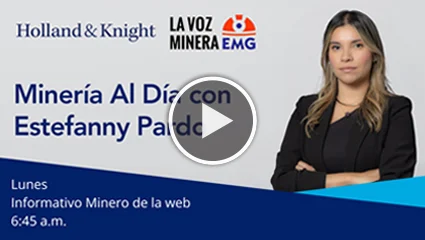DOE Announces Award Negotiations Updates for Large Capital Projects
Highlights
- The U.S. Department of Energy, Office of the Under Secretary for Infrastructure (S3) (DOE) held a webinar and released a memorandum on May 24, 2024, that provided long-awaited updates and guidance regarding award negotiations for large capital projects.
- The memorandum outlines updates in five key areas: tangible property interests, non-federal cost share, community benefits, program income and data sharing.
- The DOE emphasized that the new guidance is intended to pave the way for significant private capital investment into the clean energy transition and catalyze the industry to make investments alongside the DOE.
The U.S. Department of Energy, Office of the Under Secretary for Infrastructure (S3) (DOE) held a webinar and released a memorandum on May 24, 2024, that provided key updates and guidance regarding award negotiations for large capital projects (i.e., greater than $50 million). During the webinar, the DOE emphasized that the guidance and award negotiations changes were prompted in large part by feedback from projects in the negotiations process. The DOE's infrastructure offices currently have more than 100 projects under negotiation. Historically, the DOE awards were predominately for research and development, and the associated terms and conditions matched that particular award type. With the new federal funds from the Bipartisan Infrastructure Law and Inflation Reduction Act going to large capital projects, the DOE recognized that the standard process needs to be updated and adapted to better fit the kind of investments being pursued. The DOE recognized that the clean energy transition requires approximately $300 billion per year of private capital investment to supplement the DOE's investment and stressed the importance of finding policy and contracting outcomes that allow cooperative development of clean energy infrastructure projects. Of note, the DOE described the clean energy transition programs as "government enabled" and "private sector led."
In addition to the specific updates outlined below, the DOE stressed the importance of discussing how the guidance impacts individual projects.
Award Negotiations Guidance
In addition to the webinar, the DOE released a memorandum regarding the award negotiations developments. Importantly, Under Secretary for Infrastructure David Crane said that the guidance in the memo is effective immediately for all projects under negotiations by the Office of the Under Secretary for Instructure sub-offices.
Tangible Property Interest
- If requested and deemed necessary for project success, the DOE will enter into one or more standardized Consent Agreement(s) with Recipients and third-party lenders clarifying that the DOE's interest in project real property and equipment will not be senior to that of the lender but is expected to be on a pari-passu basis.
- The DOE is establishing an administrative process to vest title in the property at the conclusion of the award period when specified program goals have been met. Ongoing reporting may be required.
Non-Federal Cost Share
- The DOE aims to ensure that there is sufficient private sector "skin in the game," so it will take into consideration the following when evaluating the financing of a project: 1) project scope, 2) valuation of in-kind contributions and 3) funding sources such as tax credits that decrease the private sector "skin in the game."
Community Benefits
- The DOE confirmed its recent practice of having community benefits-related milestones and go/no-gos be a contractual part of the award negotiation process and indicated that community benefits are intended to become sustainable standards that should remain in place after vesting of the DOE's interests in the recipient at the conclusion of the award.
Program Income
- The DOE recognized that generating income is an essential part of catalyzing commercial liftoff. As a result, program income can be used to expand the project scope or meet cost share obligations until the end of the award.
- The DOE also provided greater clarity regarding the definition of program income: gross program income earned, excluding credits, less costs. Costs to subtract from "gross income" may include operating and maintenance costs and the cost of servicing debt and reserves, among others.
Data Sharing
- The DOE confirmed that it recognizes the importance of protecting proprietary and sensitive data and emphasized that sharing aggregated and anonymized data provides critical insights to industry.
- While the DOE is interested in facilitating the commercial liftoff of clean energy technologies, the DOE is not in the business of collecting proprietary information to engage in direct commercialization activities.
The DOE's progress on the above issues is encouraging and reflective of the agency's interest in working with commercial parties to catalyze commercial liftoff of critical clean technologies. If you have any questions about how the DOE's guidance impacts your project, please reach out to the authors or your Holland & Knight team members.
Information contained in this alert is for the general education and knowledge of our readers. It is not designed to be, and should not be used as, the sole source of information when analyzing and resolving a legal problem, and it should not be substituted for legal advice, which relies on a specific factual analysis. Moreover, the laws of each jurisdiction are different and are constantly changing. This information is not intended to create, and receipt of it does not constitute, an attorney-client relationship. If you have specific questions regarding a particular fact situation, we urge you to consult the authors of this publication, your Holland & Knight representative or other competent legal counsel.
Related Insights


